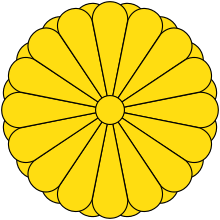Labour Relations Commission (Japan)
 |
| This article is part of a series on the politics and government of Japan |
|
Related topics |
|
|
Labor Relations Commissions (労働委員会 Rōdō Iinkai) are Japanese government commissions responsible for protecting the legal rights of workers in Japan under the Constitution of Japan and the Trade Union Act of 1949.[1]
Structure

Each of the 47 prefectures of Japan has a prefectural Labor Relations Commission. The Central Labor Relations Commission is located in Tokyo. Parties dissatisfied with a decision in one of the prefectural labor commissions can appeal the Central Labor Commission. It also hears cases of nationwide scale or great importance.[2]
Commissioners
Commissioners of the prefectural Labor Relations Commissions are appointed by the governor of the relevant prefecture, while those at the Central Labor Commission are appointed by the Prime Minister. Commissioner numbers are distributed equally among commissioners from union, employer, and public interest backgrounds.[3]
Functions
Labor Relations Commissions have two main functions:
- Making administrative decisions (such as deciding unfair labor practices)
- Adjusting labour relations (bringing together disputing parties)
While the labor commissions do have some powers to enforce decisions, they function more as forums to bring disputing parties together. More than 70% of cases end in some form of settlement.[4]
Length of cases
According to the labor ministry, from 1996 to 1999, the prefectural labor commissions took around 800 days on average to investigate a case, and the Central Labor Relations Commission spent 1,500 days in the reinvestigation process. It took roughly 500 days on average to litigate labor dispute trials brought before district courts. In 2003, various reforms were discussed to speed up the process of cases.[5] In 2005, the Trade Union Act was amended to speed up the process of labor commission cases.[6]
Proposal to abolish Central Labor Relations Commission
In 2008, during the administration of Liberal Democratic Party Prime Minister Tarō Asō the government's devolution panel recommended abolishing the Central Labor Relations Commission and only retaining the prefectural labor relations commissions.[7] The proposal was not adopted.
Examples
The National Railway Workers' Union (Kokuro) affiliated to the National Trade Union Council (Zenrokyo) has filed many labor relations commission cases against JR East regarding various types of unfair labor practices.
A group of 23 petitions filed after 1991 alleged that 1,800 union members in six prefectures had been discriminated against in violation of article seven of the Trade Union Act of 1949. Local labor relations commissions recognized discrimination in three prefectures, (Kanagawa, Tokyo and Akita) and an order for redress was issued. The company appealed this to the Central Labour Relations Commission in Tokyo. The Central Labour Relations Commission brokered a deal, and in 2005, Kokuro withdrew the 23 cases claiming anti-union discrimination against its members. In return the company paid compensation estimated at 360 million yen.[8]
References
- ↑ Ministry of Health, Labour, and Welfare website Roles of Labour Relations Commissions page 31. June 2006 Retrieved on June 17 2012
- ↑ Ministry of Health, Labour, and Welfare website Roles of Labour Relations Commissions page 31. June 2006 Retrieved on June 17, 2012
- ↑ Ministry of Health, Labour, and Welfare website Roles of Labour Relations Commissions page 31. June 2006 Retrieved on June 17, 2012
- ↑ Ministry of Health, Labour, and Welfare website Roles of Labour Relations Commissions page 32. June 2006 Retrieved on June 17, 2012
- ↑ The Japan Times Labor relation commissions to be beefed up. June 24, 2003 Retrieved on August 13, 2012
- ↑ Ministry of Health Labor and Welfare website Towards Fairer and Sounder Labor-Management Relations. June 2006 Retrieved on August 13, 2012
- ↑ The Japan Times dilution of devolution. December 18, 2008 Retrieved on August 13, 2012
- ↑ The Japan Times JR East settles Kokuro wage discrimination row. November 9, 2005 Retrieved on August 2, 2012